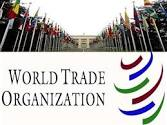COLUMBUS, OHIO / AGILITYPR.NEWS / November 08, 2022 / Farmers helping farmers find a return on...
WTO Backs US in Challenge of Chinese Trade War Tariffs

China wrongly imposed retaliatory tariffs against U.S. products, including pork, wine and fruits and nuts in response to Trump-era tariffs on aluminum and steel imports, said a World Trade Organization (WTO) dispute panel recently. The trade war levies were an additional 25% on pork and an additional 15% on fruits and derived products.
The United States said its aluminum and steel tariffs were a national security issue exempt from trade rules. China “illegally retaliated with sham ‘safeguard’ tariffs,” said spokesperson Sam Michel of the U.S. Trade Representative’s office. “The United States condemns China’s refusal to correct its severe and persistent non-market excess capacity for steel and aluminum that is at the heart of a global crisis that led to the U.S. Section 232 national security actions.”
U.S. food and ag exports slumped more than 9% during the volleys of tit-for-tat tariffs late last decade. China and the U.S. declared a truce in early 2020. Some of the tariffs remain in force and others were shelved temporarily. China is the number one customer for American farm exports, with purchases forecast at $34 billion in the current trade year.
WTO panel reports are open to appeal for 60 days after they are released. If China were to appeal, it would effectively void the ruling, since the WTO appellate body is out of operation because of a lack of judges. The Chinese Commerce Ministry said it was studying the WTO panel ruling, reported the South China Morning Post.
American Farm Bureau Federation (AFBF) President Zippy Duvall commented on the WTO ruling that China had no right to issue retaliatory tariffs on U.S. exports five years ago in response to U.S. tariffs on steel and aluminum.
“AFBF is pleased that the WTO dispute panel ruled against China’s imposition of unjust retaliatory tariffs on U.S. agricultural products. Agricultural trade is necessary for food security around the world and should not be endangered by retaliation for unrelated concerns,” said Duvall.








%20(1).png?height=200&name=Tyrrell%20Chevrolet%20Cheyen%2c%20WY%20052024%20(1920%20x%201040%20px)%20(1).png)